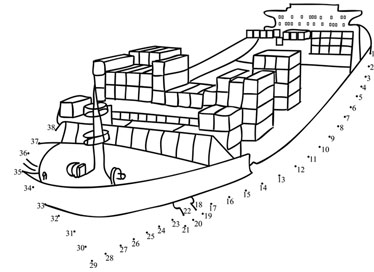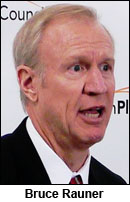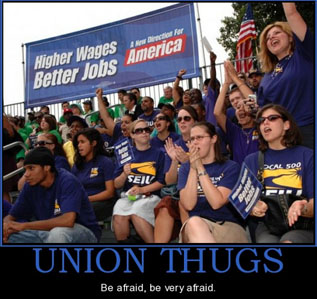NEWS ROUNDUP
TPP threat, port connect-the-dots, piece-rate case…
Tuesday, February 10, 2015
THE THREAT OF T.P.P.
 ► MUST-READ in today’s Seattle Times — The Trans-Pacific Partnership, written in secrecy, could cost U.S. jobs (by SPEEA’s Stan Sorcher) — Everyone I know is in favor of trade. We take pride when Washington state produces and exports airplanes, apples, soft white wheat and software. It should be obvious, however, that we can have good trade policy or bad trade policy…. The trade provisions in TPP are not controversial. Since tariffs are already low, Washington state producers would have the same access to foreign markets with or without TPP. Economists project that the net increase in economic activity from TPP will be a fraction of 1 percent.
► MUST-READ in today’s Seattle Times — The Trans-Pacific Partnership, written in secrecy, could cost U.S. jobs (by SPEEA’s Stan Sorcher) — Everyone I know is in favor of trade. We take pride when Washington state produces and exports airplanes, apples, soft white wheat and software. It should be obvious, however, that we can have good trade policy or bad trade policy…. The trade provisions in TPP are not controversial. Since tariffs are already low, Washington state producers would have the same access to foreign markets with or without TPP. Economists project that the net increase in economic activity from TPP will be a fraction of 1 percent.
The remaining provisions are very controversial. We know from news leaks and public statements that TPP would grant global corporations new legal rights, expand monopoly protections for pharmaceuticals and relax Wall Street regulations. These would happen while weakening our worker and environmental protections, limiting policy options in public health and restricting Internet freedom. TPP is really about power relationships, granting more power and influence to global corporations — who already have plenty of both.
PORT CONNECT-THE-DOTS
► From AP — West Coast seaports fully reopen as contract talks resume — West Coast seaports fully reopened Monday after two days during which no ships were unloaded amid a labor dispute between dockworkers and their employers.
EDITOR’S NOTE — So why’d the shippers do it?
 ► In the PSBJ — Weekend port stoppage wasn’t enough to trigger Fed involvement — It seemed like a game changer because finally, with an industry halted, the government could forcefully get involved. Why didn’t President Obama swoop in with his executive action? The PMA shut down port activity during the weekend. Union members aren’t obligated to work over the weekend, so technically it’s not locking anyone out of their work, said an attorney with Lane Powell, who also suggests it’s a political issue: “My opinion is that (Obama) would not be interested in upsetting the labor unions.”
► In the PSBJ — Weekend port stoppage wasn’t enough to trigger Fed involvement — It seemed like a game changer because finally, with an industry halted, the government could forcefully get involved. Why didn’t President Obama swoop in with his executive action? The PMA shut down port activity during the weekend. Union members aren’t obligated to work over the weekend, so technically it’s not locking anyone out of their work, said an attorney with Lane Powell, who also suggests it’s a political issue: “My opinion is that (Obama) would not be interested in upsetting the labor unions.”
EDITOR’S NOTE — Umm.. have you ever heard of Fast Track? Well, the weekend shutdown didn’t work. Now what will the PMA try?
► In today’s Oregonian — PMA ratchets up tension by casting doubt on longshore union’s contract demands — The Pacific Maritime Association is making public more details of its contract negotiations with the International Longshore and Warehouse Union, blasting the union’s demands. For months, the negotiating went on behind closed doors, but the port operators are revealing key details about the talks to ratchet up tension.
EDITOR’S NOTE — Really? Negotiating in public when they’re in federal mediation? They seem pretty laser-focused on blaming dock workers for everything, rather than reaching a deal. What about the ILWU claims that there is no port slowdown at all, but instead, congestion is due to short-sighted cost-cutting moves by the shippers to use mega-ships and sell off their chassis operation?
► In Calif. Apparel News — More chassis might not solve port congestion problem — As larger cargo container ships, known as mega-ships, keep arriving at the two ports, containers quickly stack up on the docks. Chassis shortages and dislocations have been a major contributor to the port congestion problem… Getting the kinks ironed out of the chassis problem is key to getting the ports running efficiently.
EDITOR’S NOTE — Huh.
REFINERY STRIKE
 ► At AFL-CIO Now — Oil strike grows; sign petition for safe refineries — USW members at BP refineries in Whiting, Ind., and Toledo, Ohio, joined the union’s unfair labor practice strike Sunday against the oil industry. The strike began Feb. 1, after the companies failed to address serious concerns regarding the health and safety of workers and their communities, according to the USW. Click here to sign a petition to oil industry management, federal, state and local officials supporting the striking workers in their efforts to secure a fair contract that will protect the health and safety of workers and communities.
► At AFL-CIO Now — Oil strike grows; sign petition for safe refineries — USW members at BP refineries in Whiting, Ind., and Toledo, Ohio, joined the union’s unfair labor practice strike Sunday against the oil industry. The strike began Feb. 1, after the companies failed to address serious concerns regarding the health and safety of workers and their communities, according to the USW. Click here to sign a petition to oil industry management, federal, state and local officials supporting the striking workers in their efforts to secure a fair contract that will protect the health and safety of workers and communities.
ALSO at The Stand — Refinery workers taking a life-or-death stand (by Leo W. Gerard)
► From Reuters — USW, Shell to resume talks Tuesday over U.S. refinery pact — Royal Dutch Shell and the United Steelworkers union will resume negotiations on Tuesday over a new labor contract for U.S. refinery workers, the company said on Monday as the walkouts stretched into their ninth day.
STATE GOVERNMENT
 ► In today’s (Everett) Herald — House bill ties aerospace tax breaks to higher wages — Aerospace companies benefiting from the state’s generous tax breaks must share the financial rewards with their workers through higher wages, lawmakers were told Monday. Under HB 1786, companies would have to pay veteran employees at least the state’s median wage — now hovering around $20 an hour — in exchange for paying a lower tax rate for manufacturing, wholesaling or retailing of commercial airplanes and receiving a tax credit for aerospace product development. Leaders of the two largest aerospace worker unions — Machinists District 751 and SPEEA — called it a reasonable approach.
► In today’s (Everett) Herald — House bill ties aerospace tax breaks to higher wages — Aerospace companies benefiting from the state’s generous tax breaks must share the financial rewards with their workers through higher wages, lawmakers were told Monday. Under HB 1786, companies would have to pay veteran employees at least the state’s median wage — now hovering around $20 an hour — in exchange for paying a lower tax rate for manufacturing, wholesaling or retailing of commercial airplanes and receiving a tax credit for aerospace product development. Leaders of the two largest aerospace worker unions — Machinists District 751 and SPEEA — called it a reasonable approach.
► In today’s Seattle Times — Time for Olympia to clear roadblocks for a transportation package (editorial) — For at least two years, the state Legislature has been seized in an unproductive argument about whether and how to approve a multibillion-dollar transportation investment package. It’s past time to end the melodrama and get the state moving again. The Legislature should seize the opportunity now because fuel prices are at their lowest levels in a decade. Lawmakers should also wrap up a transportation deal before fierce negotiations begin on an education-focused operating budget.
► In today’s News Tribune — Bill would require ballots to note costs of initiatives — Voters’ ballots would note the potential financial impact of initiatives under a measure debated on Monday before a Senate committee.
► In today’s Seattle Times — Higher-ed spending in Texas lured UW’s president — Texas A&M University might not be as highly ranked in national ratings as the University of Washington, and College Station is no Seattle. But Texas has one thing Washington does not: more money for higher education.
LOCAL
 ► In the Yakima H-R — Court case could drastically change the way growers pay piece-rate workers during rest breaks — The state Supreme Court will soon have something to say about break time for thousands of farm laborers paid not by their time but by how many bins they fill, blossoms they thin and trees they prune. The justices will hear a case that could drastically change the way growers pay piece-rate workers during rest breaks throughout Washington and perhaps wide swaths of America’s farm country. Farm-worker justice advocates argue the case could help right years of wrongs created by what they claim are unpaid rest breaks in violation of state law, and would encourage workers to take the rest they often skip in the name of money.
► In the Yakima H-R — Court case could drastically change the way growers pay piece-rate workers during rest breaks — The state Supreme Court will soon have something to say about break time for thousands of farm laborers paid not by their time but by how many bins they fill, blossoms they thin and trees they prune. The justices will hear a case that could drastically change the way growers pay piece-rate workers during rest breaks throughout Washington and perhaps wide swaths of America’s farm country. Farm-worker justice advocates argue the case could help right years of wrongs created by what they claim are unpaid rest breaks in violation of state law, and would encourage workers to take the rest they often skip in the name of money.
► In the Yakima H-R — Piece-rate break case attracts nationwide interest — A variety of labor advocates, farm industry associations and government agencies have filed seven briefs on the ramifications of requiring agricultural employers to pay piece-rate workers separately for rest breaks.
► In today’s (Everett) Herald — Fire District 1 to float ‘benefit charge’ — One of Snohomish County’s largest fire districts is rethinking how it does business. Fire District 1, serving much of southwest county, may add what’s called a “benefit charge” that would replace part of the fire levy.
FEDERAL GOVERNMENT
► From AP — Republican-controlled Congress to vote to repeal NLRB rule — Congressional Republicans launched a drive Monday to repeal a recent National Labor Relations Board rule updating procedures for union representation elections, setting up a likely veto showdown with President Barack Obama.
 ► At Huffington Post — A Social Security payroll tax freedom day for the 1 percent (by Nicole Woo) — On Feb. 11, the top 1 percent of American workers finish paying their Social Security payroll taxes for the year. That’s because the maximum amount of annual earnings subject to the tax is capped at $118,500. Yet most Americans don’t know that there is a Social Security payroll tax cap, because most don’t make enough money to ever hit it. Meanwhile, the Social Security trust fund is projected to be drawn down by about 2033. One of the main causes of this projected shortfall is the growth in inequality over the last 30 years. Back in the 1980s, the last time changes were made to Social Security, Congress and President Reagan decided to build up the trust fund with workers’ payroll taxes in order to essentially pre-fund the coming retirement of the Baby Boom generation. As a result, the trust fund has been steadily building up over the decades, but they weren’t able to predict how much income gaps would widen over that time. So while the payroll tax cap has been adjusted for inflation every year, the income of the richest workers has increased faster, allowing more and more earnings to escape the tax, and causing the payroll tax to collect less than needed.
► At Huffington Post — A Social Security payroll tax freedom day for the 1 percent (by Nicole Woo) — On Feb. 11, the top 1 percent of American workers finish paying their Social Security payroll taxes for the year. That’s because the maximum amount of annual earnings subject to the tax is capped at $118,500. Yet most Americans don’t know that there is a Social Security payroll tax cap, because most don’t make enough money to ever hit it. Meanwhile, the Social Security trust fund is projected to be drawn down by about 2033. One of the main causes of this projected shortfall is the growth in inequality over the last 30 years. Back in the 1980s, the last time changes were made to Social Security, Congress and President Reagan decided to build up the trust fund with workers’ payroll taxes in order to essentially pre-fund the coming retirement of the Baby Boom generation. As a result, the trust fund has been steadily building up over the decades, but they weren’t able to predict how much income gaps would widen over that time. So while the payroll tax cap has been adjusted for inflation every year, the income of the richest workers has increased faster, allowing more and more earnings to escape the tax, and causing the payroll tax to collect less than needed.
► At TruthOut — Obama’s 2016 budget is relatively good on Social Security (by Diane Archer) — While President Obama’s proposed Medicare policies leave a lot to be desired, he gets it right on Social Security. The president proposes to move tax revenue from the Social Security retirement fund to the Social Security disability fund, which would otherwise not be able to pay full benefits towards the end of 2016. And, he has dropped his proposal for a reduction in benefits through a chained CPI.
► In today’s NY Times — Left, right align in fighting Obama’s trade agenda — An odd marriage of convenience between liberal Democrats and Tea Party Republicans is squeezing President Obama on his ambitious trade agenda, forcing the White House and top Republicans to fight a two-front war on an international economic effort the president hopes to secure before he leaves office.
► At Politico — At stake in immigration debate: Billions of dollars — Immigration riders attached to the Homeland Security spending bill by the House GOP turn out to actually widen the budget deficit over the next 10 years. As a result, the $39.7 billion measure will need a supermajority of 60 votes under Senate budget rules, even if Republicans get past the Democratic filibuster.
► At Politico — Senate GOP low on Homeland Security options — Senate Republicans are running low on options on funding for the Department of Homeland Security — staying tangled in a messy fight over President Obama’s executive actions on immigration as time runs short before the Feb. 27 deadline.
NATIONAL
► At Huffington Post — Illinois Gov. Bruce Rauner blocks unions from collecting ‘fair share’ fees — Illinois Gov. Bruce Rauner (R) continued his campaign against labor unions on Monday, using executive authority to block public employee unions from collecting mandatory fees from workers. An AFSCME spokespersons said the union doesn’t use fair share fees for political contributions and called the move “a blatantly illegal abuse of power.”
 ► At Huffington Post — Meet IL Governor Bruce Rauner: Poster boy for war on middle class (by Robert Creamer) — Last fall, Illinois GOP candidate Bruce Rauner spent $63.9 million — $27.3 million of his own money — to buy the right to occupy the Illinois Governor’s mansion. Now that he’s in office his first moves have confirmed that he is the poster boy for the War on the Middle Class. Rauner is a hybrid of the worst traits of Mitt Romney and Wisconsin Governor Scott Walker. In fact, you could say he personally embodies the reason why — even though our economy has grown 77% in the last 35 years — the wages of ordinary Americans have been stagnant or actually declined.
► At Huffington Post — Meet IL Governor Bruce Rauner: Poster boy for war on middle class (by Robert Creamer) — Last fall, Illinois GOP candidate Bruce Rauner spent $63.9 million — $27.3 million of his own money — to buy the right to occupy the Illinois Governor’s mansion. Now that he’s in office his first moves have confirmed that he is the poster boy for the War on the Middle Class. Rauner is a hybrid of the worst traits of Mitt Romney and Wisconsin Governor Scott Walker. In fact, you could say he personally embodies the reason why — even though our economy has grown 77% in the last 35 years — the wages of ordinary Americans have been stagnant or actually declined.
► At AFL-CIO Now — Christie says ‘NO’ to Buy American — New Jersey Gov. Chris Christie (R) didn’t veto just one Buy American bill, he vetoed five Buy American bills that passed the New Jersey Legislature with bipartisan support.
► At Think Progress — Tennessee’s drug tests for welfare snare 37 people out of 16,000 applicants — Less than one half of one percent of Tennesseeans who applied for public assistance flunked a drug test in the first six months of the state’s experiment with drug screenings for welfare recipients.
EDITOR’S NOTE — We’d be willing to bet more than 37 of the 535 members of Congress would fail such a test.
► At BuzzFeed — To avoid ACA fee, Staples threatens to fire staff for working more than a 25-hour week — In 2015, an Affordable Care Act provision requiring large employers to offer health insurance to staff working more than 30 hours a week kicked into effect. Now, some part-time staff at Staples say management has become extra vigilant about limiting their hours.
EDITOR’S NOTE — As we needed another reason to avoid Staples.
 ► At AFL-CIO Now — Union autoworkers see higher wages as industry rebounds — While the country is having a national conversation around raising wages for workers who have seen their wages stagnate or fall, union workers are actually taking concrete action to put money in the pockets of working families. Some 300 to 500 workers at Ford Motor Co. plants will see their pay increase by $9 an hour, thanks to hard-fought provisions won in the collective bargaining process.
► At AFL-CIO Now — Union autoworkers see higher wages as industry rebounds — While the country is having a national conversation around raising wages for workers who have seen their wages stagnate or fall, union workers are actually taking concrete action to put money in the pockets of working families. Some 300 to 500 workers at Ford Motor Co. plants will see their pay increase by $9 an hour, thanks to hard-fought provisions won in the collective bargaining process.
TODAY’S MUST-READ
 ► In today’s Washington Post — Should you join a union? The research says yes. (by Linda DePillis) — Unions have many effects other than (higher) wages, of course. But those are more difficult to measure, so wages are a good stand-in — and by that metric, a union membership card still has significant benefits, if you can get past the increasingly high hurdle of organizing a workplace.
► In today’s Washington Post — Should you join a union? The research says yes. (by Linda DePillis) — Unions have many effects other than (higher) wages, of course. But those are more difficult to measure, so wages are a good stand-in — and by that metric, a union membership card still has significant benefits, if you can get past the increasingly high hurdle of organizing a workplace.
The Stand posts links to Washington state and national news of interest every weekday morning by 10 a.m.





